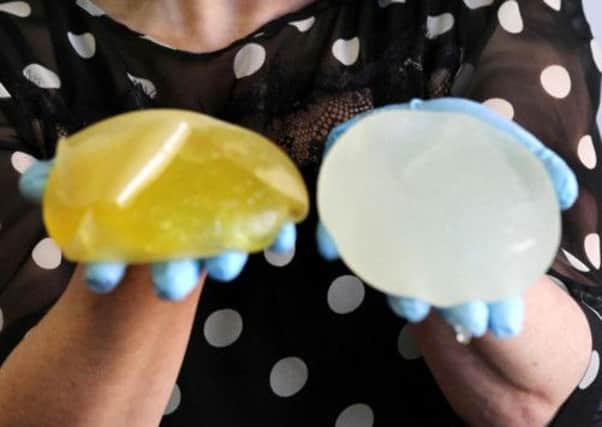Call for action on cosmetic surgery loopholes


NHS medical director Professor Sir Bruce Keogh, who chaired the independent review, called for systems to track all implants and devices put into both NHS and private patients.
“We need more data - we need data to define outcomes, we need data to identify problems accurately and early,” he said.
Advertisement
Hide AdAdvertisement
Hide Ad“I think if we had had that data we would have spotted that there were problems with the PIP implants and we would have spotted it earlier and we would have been able to trace patients.
“This is a pretty data free zone - with the PIP implants, not only did organisations implanting not really keep a good record of what they had done, they didn’t have a record of the outcomes either.
“The most important thing in my mind it meant that we had a faulty product on the market and we had no way of tracing the women who had PIP implants to notify them they might be carrying a troublesome implant.”
Around 47,000 British women are believed to have been given the implants made by French company Poly Implant Prothese (PIP).
Advertisement
Hide AdAdvertisement
Hide AdThey were filled with non-medical grade silicone intended for mattresses but health experts have said the implants should not cause any long-term problems.
The review board recommended that all people who perform plastic surgery in the UK should named on a register.
And Sir Bruce warned that some parts of the private sector do not conduct qualification checks on surgeons performing cosmetic surgery.
“That seems unfair to us because the citizens of this country should expect an equal standard of scrutiny of surgeons whether they go into the private sector or the NHS,” he said. “That was further complicated by the fact that 50 per cent or more cosmetic surgery done in this country is performed by surgeons who fly in and fly out from abroad.”
Advertisement
Hide AdAdvertisement
Hide AdHe called for more unannounced inspections on manufacturing plants.
“When the inspectors went in to look at the manufacturing plants in Europe, and they went to the PIP manufacturing plant, it was announced,” he said.
“Whilst I know a lot of unannounced visits go on it did seem to us that if you announce your visit to a manufacturer who is intent on deceiving the visitors then they’re likely to be on their best behaviour when you show up so we would like to see more unannounced visits.”
The scandal also drew attention to “widespread use of misleading advertising, inappropriate marketing and unsafe practices”, the review said, and warned of the need for people to be properly protected if things go wrong.
Advertisement
Hide AdAdvertisement
Hide AdIn January the Government announced that women given PIP breast implants on the NHS would be able to have them removed for free. Private firms were expected to offer the same deal but it emerged some clinics no longer exist and others refused to remove the implants.
Sir Bruce added: “People should have redress. We think the role of the Parliamentary and Health Service Ombudsman should be extended to cover the whole of private health care.
“We have recommended all practitioners carry appropriate indemnity, but perhaps more importantly, that we put in place a series of ABTA-style risk pools to protect patients when things go wrong and when companies go out of business. That comes after the people involved with the PIP implant debacle were just left high and dry.”